Never Say the Night Is Slow
The Highway Angels have been offering first aid in 220 kms of Caracas highways for over six years now. We spent the night with this paramedic crew, and witnessed their passion and dedication up close.


Photo: Daniel Blanco.
It’s 7:00 on a Friday night. Despite being on call for the past 12 hours, paramedics from the Road Restoration and Emergency Assistance Brigade aren’t tired. They’re used to go without sleep during their 24-hour shifts and they catnap so light that they’re able to open their eyes before they get a knock on the door announcing an accident.
This brigade, better known as the Highway Angels, was created to offer first aid and pre-hospital care in 220 kms of highway in Gran Caracas. However, they handle all kinds of emergencies in the Metropolitan area: traffic accidents, births, suicide attempts, violence, rescues in rivers, injured dogs, natural disasters and support to hospitals.
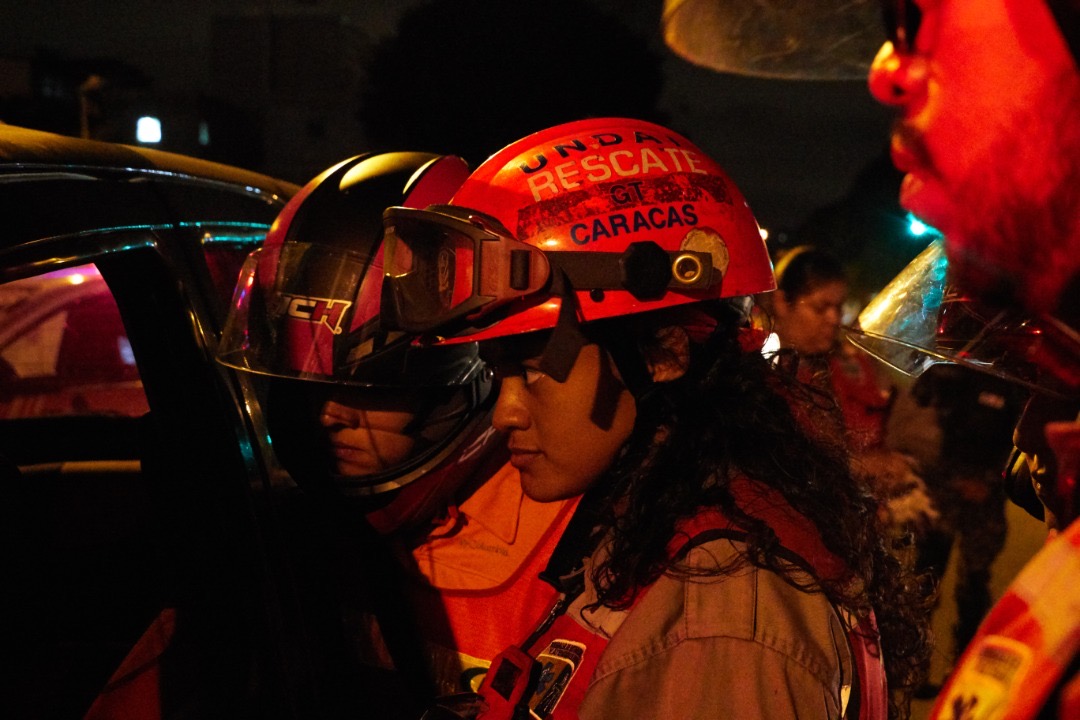
The brigade’s response time has improved a lot compared to international standards. Photo by Daniel Blanco.
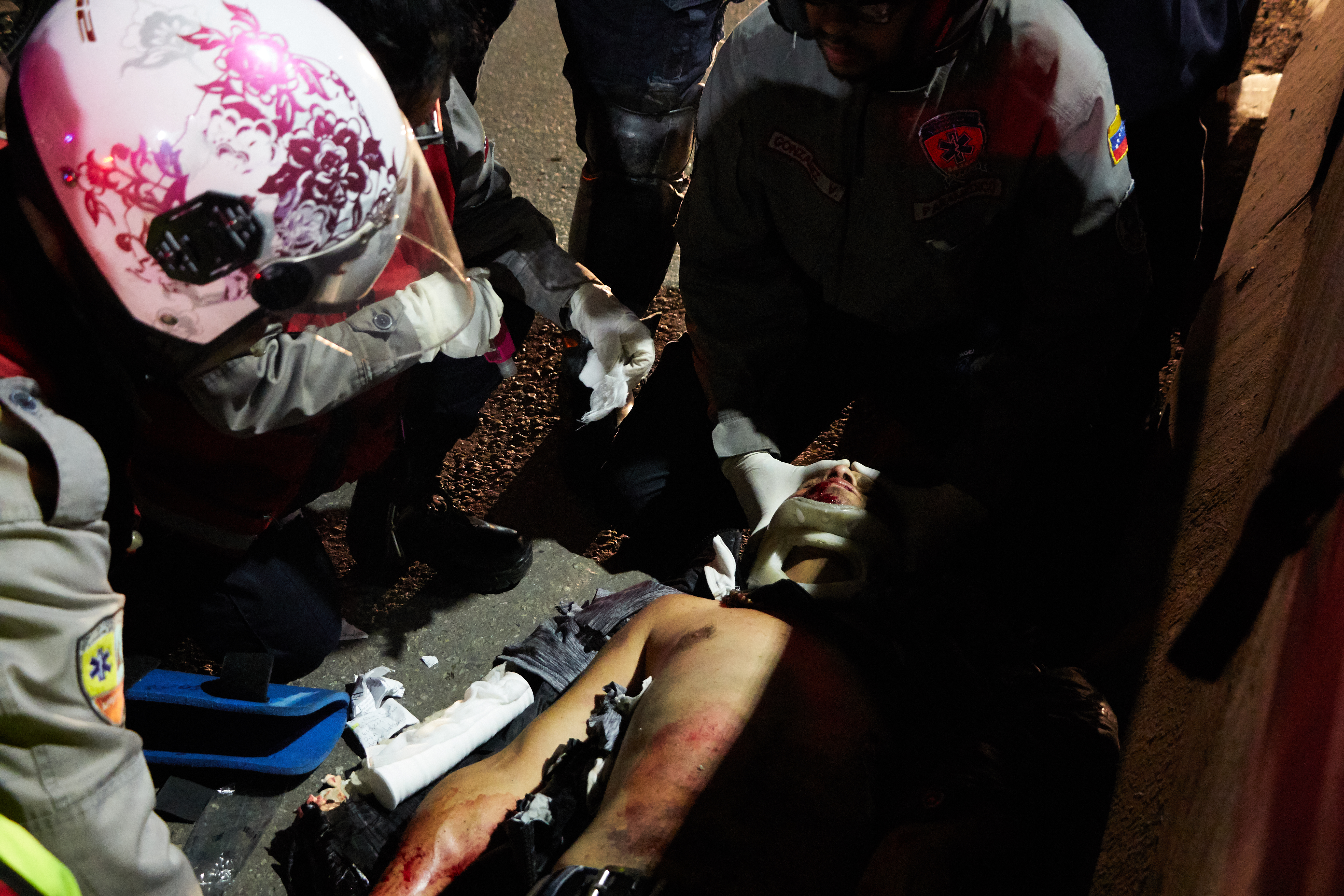
They don’t have rituals, but they do have one superstition—never say the night is slow. Photo by Daniel Blanco.
“We’ve broadened our range of motion because of the difficulties other organizations endure,” says Wilbani León, the brigade’s traffic monitoring and emergency assistance director. Wilbani, an EMT, delivered his baby daughter himself in an ambulance. He holds the brigade’s record of most deliveries: 33 babies brought into this world during complicated rides.
Today, and despite the collapse of the healthcare system that hits them directly, they’ve managed to increase their time of response compared to international standards: “The average time of response in the world in ten minutes, ours is between three and five. This is because of an effective deployment of attention units and a great training for EMTs in motorbikes,” says Wilbani.
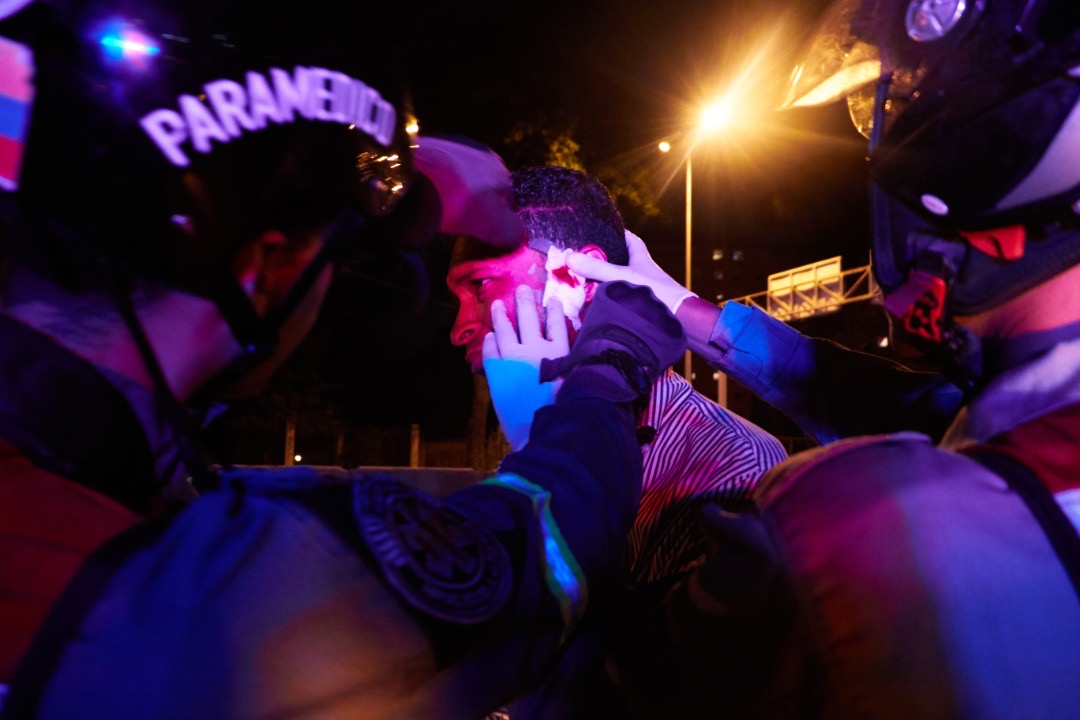
In the face of scarcity, the team has found numerous workarounds to save the life of its patients. Photo by Daniel Blanco.
The Highway Angels team is composed of 110 people. Groups of 25 EMTs cover each 24-hour shift. Most of them have families and two jobs, making minimum wage and dealing with scarcity, crime and poorly lit roads. María Gabriela González, who’s been an EMT for five years, explains that creativity has been key: “We can turn a syringe into an aspirator; without laryngoscopes, we can use a larynx mask. There’s a thousand other hacks.”
Nobody Left Alone
The second half of the shift starts with dinner donated by a restaurant: burgers, soda, coffee and cookies. They laugh, talk about the beach and the parties of their youth. They don’t have rituals, but they do have one superstition—never say the night is slow. At 2:26 a.m., the PNB lets them know of a motorbike accident with one injured, in Teherán Ave., Montalbán. They’re there by 2:42 a.m.; the biker has a facial fracture and is moved to the Domingo Luciani Hospital, where he is quickly admitted. But there is a man already waiting in the hospital entrance, with a head injury and a lost gaze, covered in blood from head to toe. He approaches the EMTs saying that the PNB drove him here after he was run over, but he hasn’t been allowed in. The EMTs check his motor and ocular response and clean up the wound.
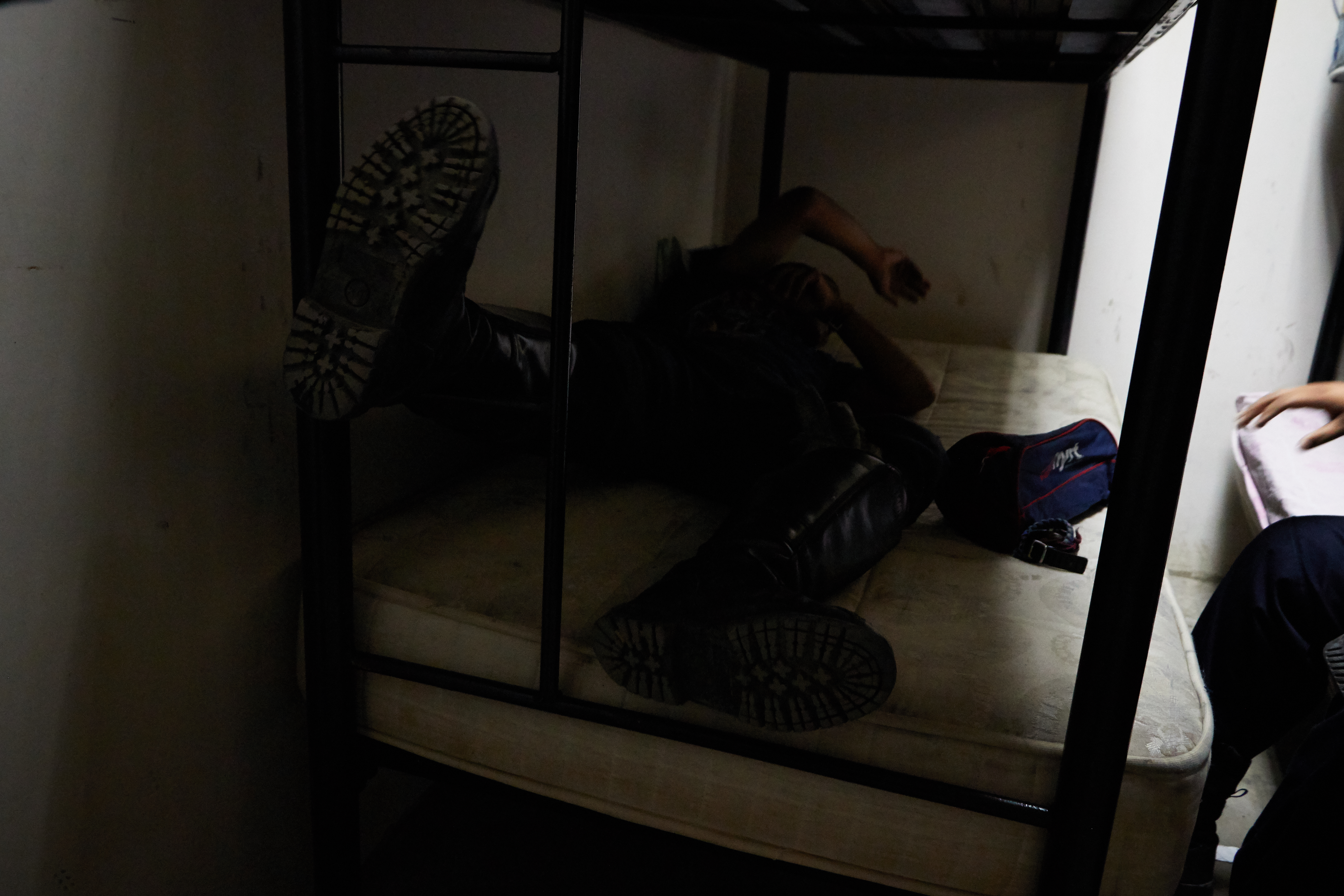
The Highway Angels team is composed of 110 people, with groups of 25 EMTs. Photo by Daniel Blanco.
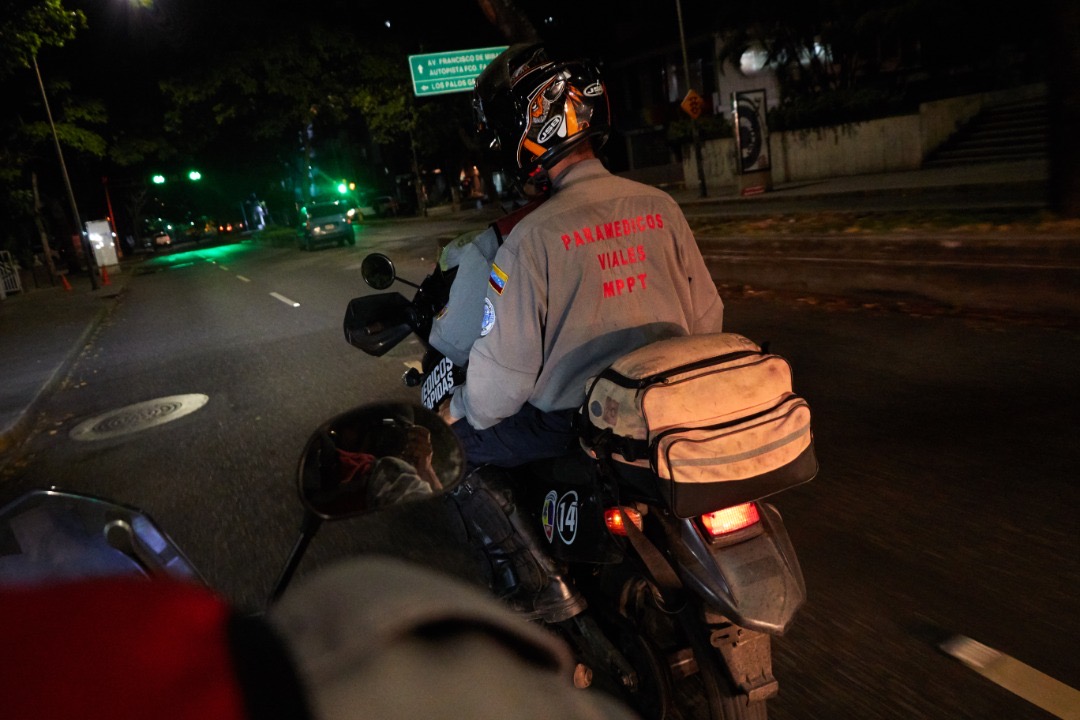
The key hour is the immediate one after an accident, that’s where EMTs have the best chance of saving a life. Photo by Daniel Blanco.
“Our job is to accompany the victims until they’re admitted. We can’t leave a patient alone,” says doctor Yasenka Maita. “Sometimes we have a patient on the ambulance and we have to take them to three or six hospitals before they’re admitted. This makes us neglect the highway and have an ambulance out of service for more time than necessary. We should have priority status but we don’t, we work like citizens.”
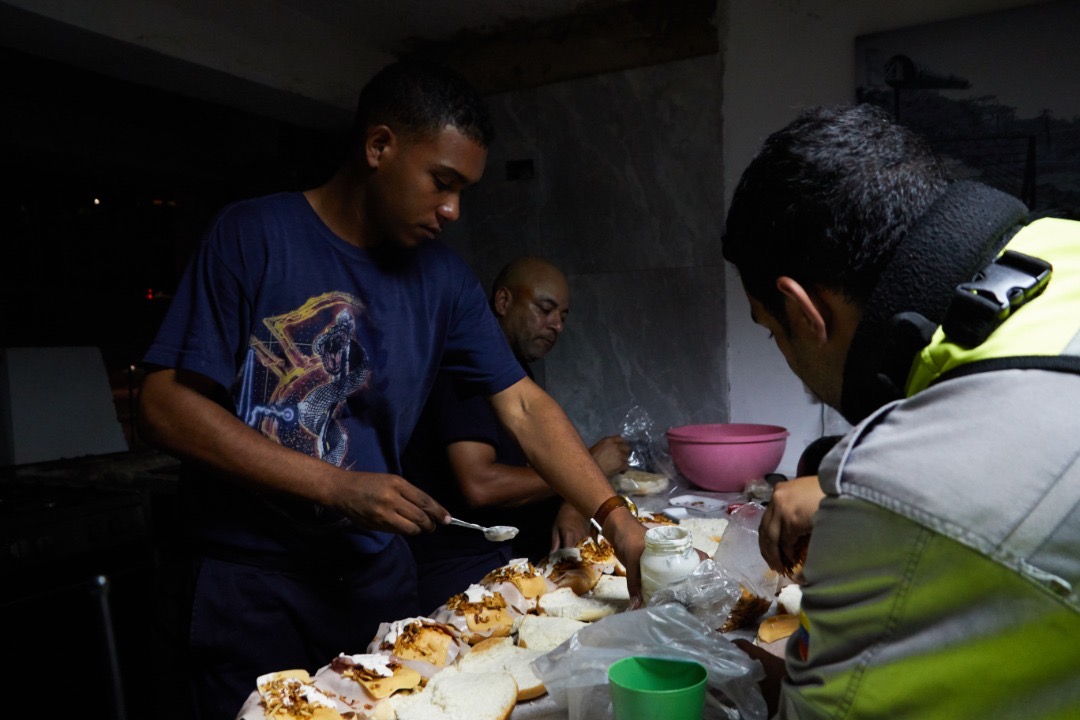
The brigade dines with donations from a restaurant and has mastered the art of the catnap. Photo by Daniel Blanco.
At 5:36 a.m., they’re notified of an accident, with three injured. On the site, a group of women accompanies the owner of one of the vehicles: “We saw militias come and take batteries and tires from cars. We’re here so they don’t rob no more.” They refused to leave until everyone else was gone. “We’ve seen every bad thing happen in this area, but it’s hard to see how nobody helps in an accident,” says one of them, after telling the EMTs she would bring them coffee, if she had any. The PNB didn’t have a road safety triangle for the accident, so they improvised one with a column of old tires from the tire stores in Misión Vivienda. Of course, a third car crashed it.
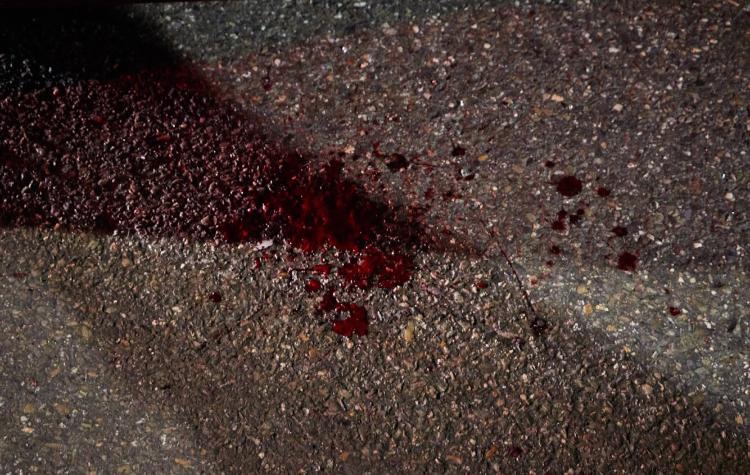
“We try to not go into particular areas because we can get shot.” Photo by Daniel Blanco.
“Pre-hospital care is a high-risk service, for victims and EMTs alike,” says Dr. Maita. “We try to not go into particular areas because we can get shot if we’re mistaken for the police, with our uniforms and our unmarked ambulances.” Since the brigade was founded, two officers have died in crashes on the way to accidents: Robert Miquilena in 2014 and Juan Carlos Gómez in 2015.
Addicted to Helping
Some of them have been trained in military rescue, others in defensive driving, conflict and disaster emergency. Some have been firemen, civil protection officers or bodyguards. Ángel Pinto, an 18-year-old intern who started training at 15, comes from a family with a military tradition: “I wasn’t convinced about working for a decaying institution, but I was sure about wanting to help people. So I became a paramedic.”
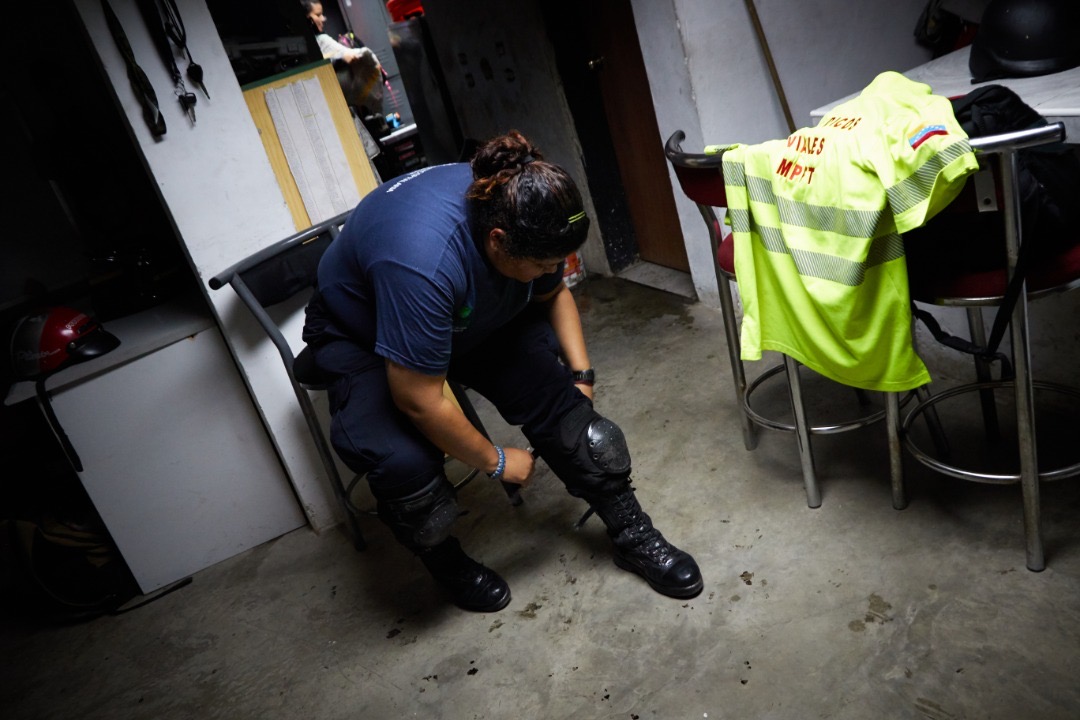
“We could reach around 19 accidents a day,” says Wilbani, “now, on a busy night, we see ten.” Photo by Daniel Blanco.
The brigade has responded to 6,399 calls for help so far this year. “I run into people on the streets who greet me as if we were family. They tell me I helped them once. I don’t remember most faces, but I remember the stories,” says María Gabriela.
The brigade has only one working ambulance (out of five,) seven motorbikes and a tow truck. The Transport Ministry pays their salaries, tires, oil and gas, the rest of the funds are collected by them and volunteers in the donors network established since 2016.
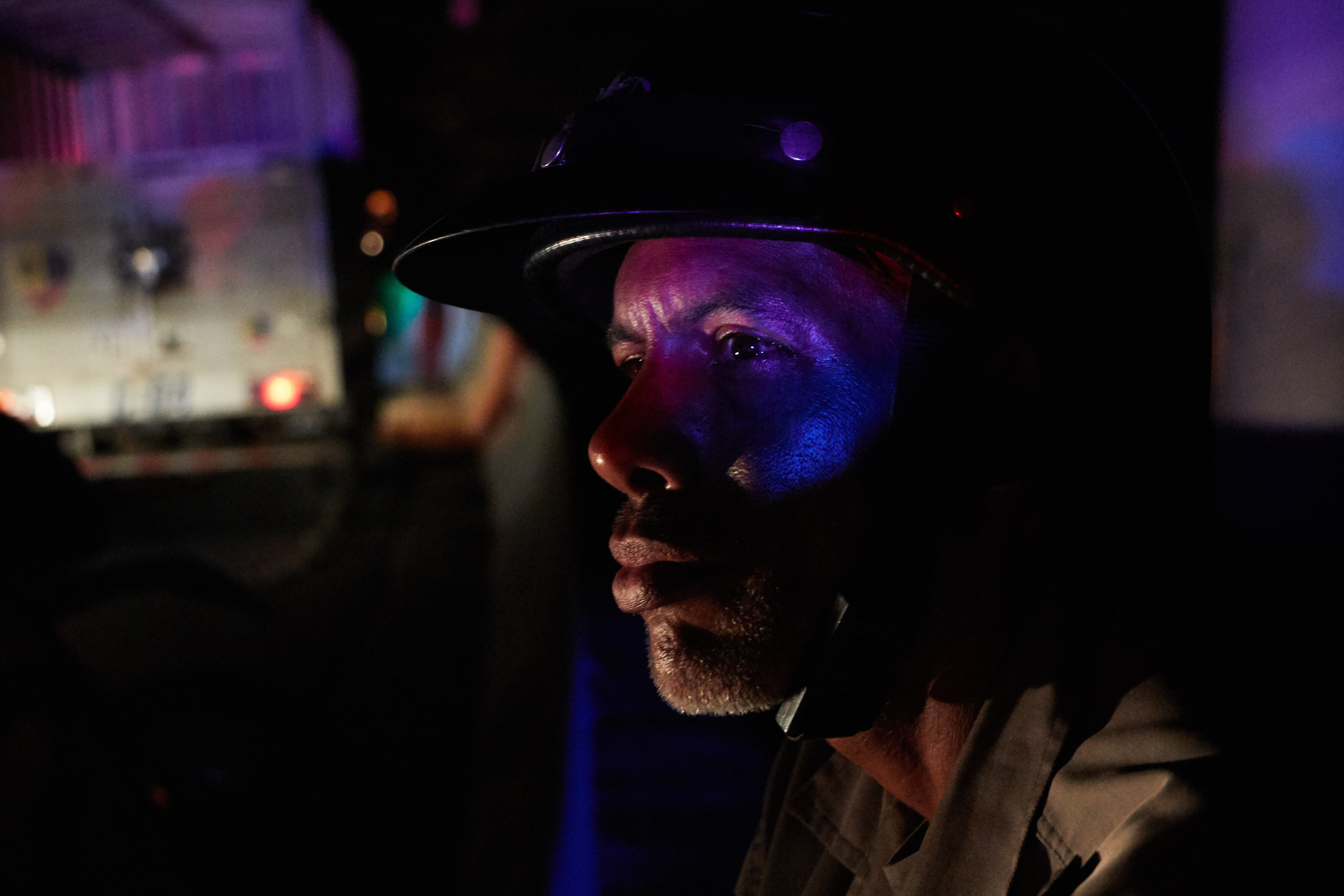
Many in the group have extensive training from a variety of backgrounds. Photo by Daniel Blanco.
“We could reach around 19 accidents a day,” says Wilbani, “now, on a busy night, we see ten, tops. A lot of people have left, and you can see it on the street.”
“The calling remains,” says Carlos González, 30-year-old single dad, with experience as an aviation rescuer. “We like the adrenaline, but we’re fundamentally addicted to helping others.”
Caracas Chronicles is 100% reader-supported.
We’ve been able to hang on for 22 years in one of the craziest media landscapes in the world. We’ve seen different media outlets in Venezuela (and abroad) closing shop, something we’re looking to avoid at all costs. Your collaboration goes a long way in helping us weather the storm.
Donate




